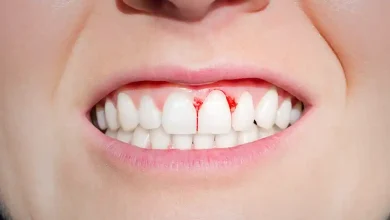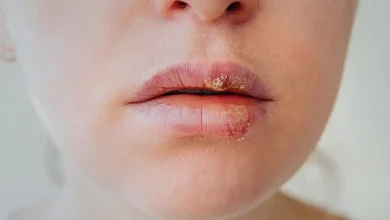All About Alcohol Abuse

What is Alcohol Abuse?
Alcohol abuse disorder occurs when a person is addicted to drinking alcohol and involves problems controlling his/her drinking. An alcohol abuser will be preoccupied with alcohol or continue drinking alcohol even if it’s causing both mental and physical problems. Alcohol abusers need to drink regularly or they will get withdrawal symptoms if the person suddenly reduces or stops drinking. Alcohol abuse is also called alcoholism. Alcohol abusers can have any alcohol use that puts their health or safety at risk or creates other alcohol-related disorders such as binge drinking — a way of drinking where a man has five or more drinks within two hours or a woman has at least four drinks in a period of two hours. Binge drinking leads to various health and safety issues.
If you are drinking on a daily basis and if you are not able to do any work if you don’t drink even for a day and create problems in your personal and professional life that means you’re suffering from alcohol abuse disorder. The way a person’s drinking causes repeated crucial distress and affects the functioning of the person’s daily life, which can vary from mild to severe. Nevertheless, even a mild disorder can increase and can cause serious disorders, so early treatment is very important.
What are The Symptoms of Alcohol Abuse?

The signs and symptoms of alcohol abuse may include:
- An alcoholic will be unable to control the limit the amount of alcohol he drinks
- Unable to cut down the intake of alcohol and unsuccessful tries to stop drinking
- Lot of time and money is spent on drinking, getting alcohol, or getting recovered from alcohol abuse
- Unable to stop strong cravings or urge of drinking alcohol
- Being unsuccessful at work, school, or home because of repeated alcohol usage
- Can’t stop drinking alcohol even after knowing it causes physical, social, work, or relationship problems
- Giving up non-drinking friend circle or decreasing social and work activities and hobbies to drink alcohol
- Drinking alcohol in situations that are not safe, like driving or swimming
- Becoming tolerant to alcohol so you will require more amount of alcohol to be high or have a decreased effect from the same amount of alcohol
- Withdrawal symptoms including nausea, sweating, and shaking if you don’t drink
- Giving up activities so you can drink.
- Constant urge and cravings for alcohol.
- Required to drink more amount of alcohol to get high.
- Cannot stop drinking once it’s begins
- Alcohol obsession
What are the Types of Alcohol Abuse?
There are no types of alcohol abuse but there are three types of drinkers which can be classified into three categories
Moderate: Moderate drinkers are usually the ones who drink occasionally and can drink and leave alcohol anytime.
High: A high drinker may face many problems because of drinking and drinking almost regularly or sometimes in a gap of one or two days. His drinking habit may increase gradually and can impair him physically and mentally. It may even cause death a few years before his time.
Alcoholic: This category of drinkers falls under the category of alcohol abusers and if he does not take proper treatment he can suffer from various liver and kidney-related disorders ultimately resulting in death.
What Causes Alcohol Abuse?
The causes of alcohol abuse can have many causes such as genetic, psychological, friend circle, depression, social and environmental factors. These causes will affect your body and behavior. According to a few studies certain people drinking have a different and stronger impact that may result in alcohol abuse.
Over a while, drinking a large amount of alcohol affects the normal functioning of certain areas of your brain that are linked with the experience of joy, happiness, judgment, and the capability to exercise control over your behavior. This may lead to craving alcohol to try to restore good feelings or decrease negative ones.
What Are The Risk Factors of Alcohol Abuse?

The general risk factors of alcohol abuse may include?
Regular Drinking: Drinking high amount of alcohol on the regular basis for a long time or binge drinking can cause alcohol-related diseseas especially liver-sirosis or alcohol use disorder.
Drinking from early age: If you starts drinking from an early age especially if you are drinking regularly then there is a high chance of getting alcohol use disorder.
Family history: The risk of alcohol abuse increases when one of your parents or any other close relaove is sufferring from alcohol abuse disorder and it might be because of genetic issues.
Depression and other mental health issues: It’s usual for people with a mental health disorder including depression, anxiety, depression, or bipolar disorder to develop alochol or grug abuse.
History of trauma: People who have gone througha history of emotional trauma such as losing someone close,divorce or any other trauma are at the higher risk of alcohol abuse disorder.
Social and cultural factors: If you have friends or close partners who are alcoholic then it may increase your risk of alcohol use disorder. Some get into drinking because of peer pressure or the glamour attached with it.
What are the Complications of Alcohol Abuse?
Liver disease: Heavy drinking can cause increased fat in the liver (hepatic steatosis) and inflammation of the liver (alcoholic hepatitis). Over time, heavy drinking can cause irreversible destruction and scarring of liver tissue (cirrhosis).
Digestive problems: Heavy drinking can result in inflammation of the stomach lining (gastritis), as well as stomach and esophageal ulcers. It can also interfere with your body’s ability to get enough B vitamins and other nutrients. Heavy drinking can damage your pancreas or lead to inflammation of the pancreas (pancreatitis).
Heart problems: Excessive drinking can lead to high blood pressure and increases your risk of an enlarged heart, heart failure or stroke. Even a single binge can cause serious irregular heartbeats (arrhythmia) called atrial fibrillation.
Diabetes complications: Alcohol interferes with the release of glucose from your liver and can increase the risk of low blood sugar (hypoglycemia). This is dangerous if you have diabetes and are already taking insulin or some other diabetes medications to lower your blood sugar level.
Issues with sexual function and periods: Heavy drinking can cause men to have difficulty maintaining an erection (erectile dysfunction). In women, heavy drinking can interrupt menstrual periods.
How Alcohol Abuse is Diagnosed?
At present there is not a single lab test available to detect alcohol abuse. A doctor can diagnose your drinking problem by having a consultation with you and how your drinking problem is affecting your daily life and based on a conversation with your healthcare provider. The diagnosis is made when drinking interferes with your life or affects your health.
To properly diagnose your drinking problem a doctor may ask you some questions and take some tests such as.
Some questions will be asked to your regarding your drinking habits: A doctor will enquire about your drinking problem with you along with your friends, family and relatives to know about the level of alcohol you consume om a daily basis.
Performing a proper physical exam: A physical exam will be taken by your doctor and enquire about your health. There are lots of physical signs and symptoms that show complications of alcohol abuse.
Lab tests and imaging tests: Even if there are no concrete tests available to diagnose alcohol abuse, a few patterns of lab tests may indicate the problem of alcohol abuse. Also there will be tests to look out for other health related issues that may be linked with your alcohol abuse that can damage organs of your body.
What are the Treatment Options Available for Alcohol Abuse?
Detox and withdrawal: A doctor will first start the treatment with detoxification — withdrawal that can be medically managed. It usually takes one week. You may be needed to take sedating medications to avert withdrawal symptoms. Detox is generally done at a rehab center or in a hospital.
Learning new skills and making a treatment plan: It generally involves alcohol treatment specialists. It might include skills and goal plans such as goal setting, behavior change techniques, use of self-help manuals, counseling and follow-up care at a treatment center.
Psychological counseling: Counseling and therapy for groups and individuals help you better understand your problem with alcohol and support recovery from the psychological aspects of alcohol use. You may benefit from couples or family therapy — family support can be an important part of the recovery process.
Oral medications: Disulfiram is a drug that helps to avert you from drinking, even though it won’t cure alcohol use disorder or cure the craving of drinking. Naltrexone is a medicine that stops the good feelings one feels while drinking and can prevent heavy drinking and decrease the craving to drink.
Injected medication: Vivitrol is a type of the drug naltrexone, and it’s injected monthly by a professional. Even Though medicines can be taken in pill form, the injectable kind is the drug is simpler for people recovering from alcohol use disorder to use persistently.
Treating psychological problems: Alcohol abuse can cause mental health disorders. If your conditions like anxiety, depression, etc. You have to take psychotherapy, medications or some other treatments.
Medical treatment for health conditions: Lots of alcohol-related health issues get better notably once you stop drinking. Even though conditions continue treatment and proper follow up care.
Spiritual practice: Alcohol abusers can go for spiritual practices such as meditation, yoga, praying etc.
Rehabilitation Centers: People with severe cases of alcohol abusers will be sent to rehabilitation centers for a few weeks to months where they will be properly guided, given proper medications etc. They will be given counseling through professionals about the harmful effects of alcohol abuse.
Whom to Consult?
When you feel that your alcohol consumption is too much and daily which is causing problems and your personal and daily life and your family is concerned about your drinking, you should consult with a doctor, especially a psychiatrist who will start your treatment which may be including giving medicines, detoxifying your body from alcohol and sending you to rehab centers in severe cases. Start discussing with a mental health professional and look for help from a support group like Alcoholics Anonymous or a similar type of self-help group. Sometimes many people are in denial because of the social stigmas attached to it but it won’t solve the problem. Share your feelings with relatives, friends, or co-workers to seek help. You can also consider talking with a person who has had a drinking problem but now is sober.
Living with Alcohol Abuse?
When you feel that you are drinking too much alcohol regularly which is causing problems, or if your family is tense about your drinking, discuss it with a doctor. Various ways to seek help include talking with a mental health professional or taking advice from a support group like Alcoholics Anonymous or the same types of self-help groups.
Denial is common among alcohol abusers, where you feel like you don’t have a problem with drinking. You might not be able to recognize how much you are drinking or how many issues both professional and personal are in your life which are linked to alcohol abuse. Follow the advice of your doctor and well-wishers along with treating your drinking habits. You will be able to live a normal life after getting rid of your drinking habit.




